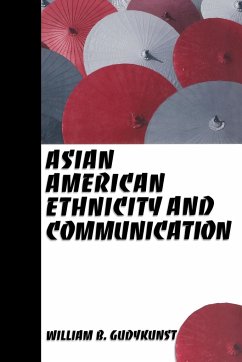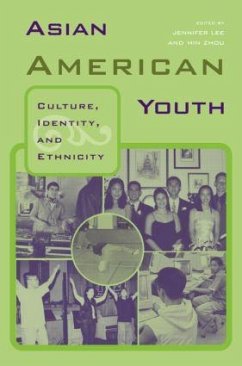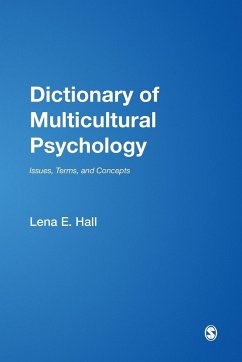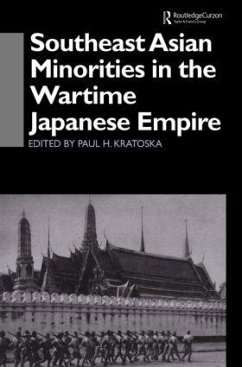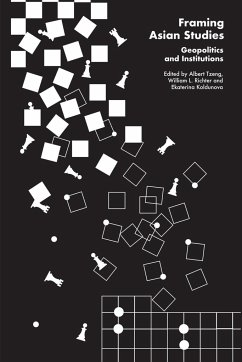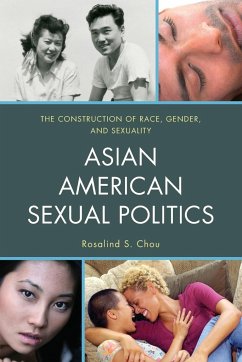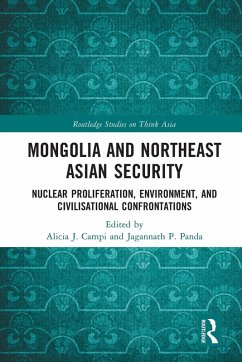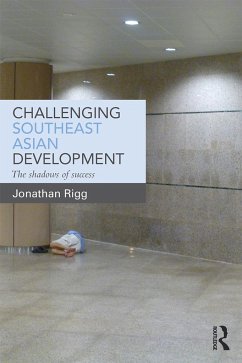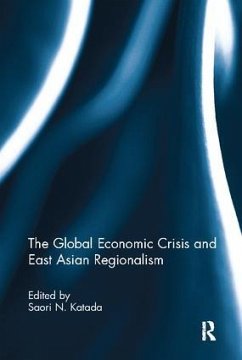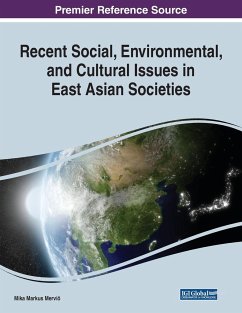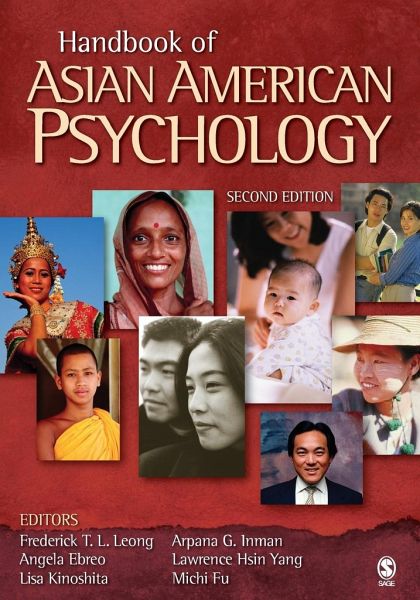
Handbook of Asian American Psychology
Versandkostenfrei!
Versandfertig in 1-2 Wochen

PAYBACK Punkte
42 °P sammeln!




The Second Edition of the Handbook of Asian American Psychology fills a fundamental gap in the Asian American literature by addressing the full spectrum of methodological, substantive, and theoretical areas related to Asian American Psychology. This new edition provides important scholarly contributions by a new generation of researchers that address the shifts in contemporary issues for Asians and Asian Americans in the U.S.
Frederick T. L. Leong, Ph.D., is Professor of Psychology (Industrial/Organizational and Clinical Psychology Programs) and Psychiatry. He is also the Director of the Center for Multicultural Psychology Research at Michigan State University. He has authored or co-authored more than 250 journal articles and book chapters. In addition, he has edited or co-edited 12 books. Dr. Leong is a Fellow of the APA (Divisions 1, 2, 5, 12, 17, 29, 45, 52), Association for Psychological Science, Asian American Psychological Association, and the International Academy for Intercultural Research. His major research interests center around culture and mental health, cross-cultural psychotherapy (especially with Asians and Asian Americans), and cultural and personality factors related to career choice and work adjustment. He is past president of APA′s Division 45 (Society for the Psychological Study of Ethnic Minority Issues), the Asian American Psychological Association, and the Division of Counseling Psychology in the International Association of Applied Psychologists. He has served on the APA Board of Scientific Affairs, the Minority Fellowship Program Advisory Committee, and the Commission on Ethnic Minority Recruitment, Retention, and Training (CEMRRAT2) Task Force. He received the Dalmas Taylor Distinguished Contributions Award from the APA Minority Fellowship Program and the Stanley Sue Award for Distinguished Contributions to Diversity in Clinical Psychology from APA Division 12. He is also the 2007 co-recipient of the APA Award for Distinguished Contributions to the International Advancement of Psychology. Dr. Arpana G. Inman received her Ph.D. in Counseling Psychology from Temple University and is currently an Assistant Professor at Lehigh University, Pennsylvania, in the Counseling Psychology Program. Prior to this she was on the faculty at Seton Hall University, New Jersey. Her scholastic and research interests are in the areas of multicultural issues and Asian American concerns. Specifically, these interests span several topics including acculturation, South Asian immigrant and second generation cultural experiences, ethnic and racial identities, the psychology of women and supervision and training. She has presented nationally and internationally at several conferences and published in these different areas. Dr. Inman is also the recipient of the 2002 Jeffrey S. Tanaka Memorial Dissertation Award in Psychology, APA Committee on Ethnic Minority Affairs (CEMA). She recently co-founded a listserve for South Asian Concerns called SAPNA (South Asian Psychological Networking Association). Dr. Inman was the Co-Chair for the Division on Women, AAPA, from 2002-2003. Currently, she is the Vice President for the Asian American Psychological Association and the Asian American Pacific Islander Special Interest group within the Association of Multicultural Counseling and Development in ACA. Dr. Angela Ebreo is Assistant Director for Research at the Institute for Research on Race and Public Policy, University of Illinois at Chicago, where she coordinates the Institute's Asian American Initiatives and assists with several other research activities including the Institute's Race and Ethnic Disparities in Health Initiative. Prior to her appointment at UIC, she as a postdoctoral fellow in the Department of Behavioral Science, University of Kentucky College of Medicine. Dr. Ebreo received her Ph.D in Social Psychology from the University of Illinois at Urbana-Champaign. Dr. Ebreo is a member of the American Psychological Association (Divisions 9, 27, 38, and 45), the American Public Health Association, and the Society for Prevention Research. She served on the Executive Committee of the Asian American Psychological Association (2002-2004) and currently serves as the Association's Membership Officer. Her research interests include cultural differences in social support and health maintenance, campus-community collaborative research, and culturally sensitive research methodology. Lawrence H. Yang is an associate professor and directs the Global Mental Health and Stigma Program at the School of Global Public Health, New York University. He is also an adjunct associate professor in epidemiology at Columbia University. Dr. Lisa Kinoshita is a Social Science Research Associate at Stanford University School of Medicine in the Department of Psychiatry and Behavioral Sciences. Dr. Kinoshita completed her clinical psychology internship at the VA Palo Alto Health Care System where she received extensive training in clinical geropsychology, neuropsychological assessment and Asian American psychology. During her internship, she learned extensive memory evaluation methods using neuropsychological measures and directly observed the benefits of early dementia evaluations for older adults. She also conducted cognitive behavioral therapy with ethnically diverse depressed dementia caregivers. Dr. Kinoshita was the first postdoctoral fellow in dementia research with the Mental Illness Research Education and Clinical Center (MIRECC). As a fellow, she pursued additional training in neuropsychological assessment with older adults and began conducting research on culture fair memory assessments, in particular with Japanese and Chinese elders. She continues to do neuropsychological evaluations, particularly with older adults who have memory concerns. She also coordinates medication trials aimed at slowing the progression of Alzheimer's disease. Dr. Kinoshita has published a number of articles and book chapters that focus on cultural diversity within a clinical setting. She recently published an article on the influence of traditional Japanese cultural beliefs on Japanese American caregiving. She also co-authored a book chapter on cognitive behavioral therapy with ethnically diverse older adults. Dr. Kinoshita is the past Secretary-Historian for the Asian American Psychological Association (2001-2003). Dr. Michi Fu is a psychologist at the Asian Pacific Family Center of Pacific Clinics in Rosemead, California. Prior to APFC, she was a psychologist working at the Counseling and Student Development Center at the University of Hawaii (2000-2004) and the Sex Abuse Treatment Center at Kapiolani Medical Center for Women and Children (2002-2004). She received her Ph.D. from the California School of Professional Psychology at Alliant International University in Los Angeles, California with an emphasis in Multicultural Community Clinical Psychology. She has authored a chapter on play therapy with Asian Americans and her dissertation examined the relationship between acculturation, ethnic identity, and family conflict among Chinese Americans.&n! bsp; She is an Okura Mental Health Leadership Fellow (2002). Her research interests are in ethnic identity, acculturation, interracial relationships, and women¡]s issues among Asian Americans. Currently, she is a Board Member of the Asian American Psychological Association.
Produktdetails
- Verlag: Sage Publications, Inc
- 2. Auflage
- Seitenzahl: 528
- Erscheinungstermin: 12. Juli 2006
- Englisch
- Abmessung: 254mm x 178mm x 28mm
- Gewicht: 982g
- ISBN-13: 9781412924672
- ISBN-10: 1412924677
- Artikelnr.: 21918734
Herstellerkennzeichnung
Libri GmbH
Europaallee 1
36244 Bad Hersfeld
gpsr@libri.de
Für dieses Produkt wurde noch keine Bewertung abgegeben. Wir würden uns sehr freuen, wenn du die erste Bewertung schreibst!
Eine Bewertung schreiben
Eine Bewertung schreiben
Andere Kunden interessierten sich für




